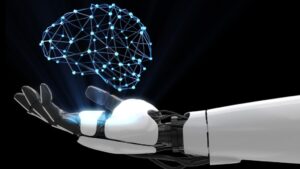The talk about robotics brings forth mingled feelings in our society. While programmers and engineers are trying to change the world, the workplace reacts to automation with emotional resistance. Fear and excitement are in the air as artificial intelligence and machine learning influence the “metal.”
They’re Getting Smarter
Robots and factory automation have been around since the 60s, and ordinary employees have been fearful of losing jobs for decades now. However, automation only added to the convenience, lowered the price, and improved the manufacturing speed.
Robotics has been thriving in recent years. Everybody understands that AI is going to take robotics to a new level. As genius kids turn forward-looking ideas into reality at school clubs, startups move towards disrupting industries.
Meanwhile, larger corporations compete to push hardware forward. An article in the Octopart API website mentions that Google and NVIDIA are in a cutthroat battle to release parts and processing units with embedded AI support.
Making a robot from scratch isn’t easy. First of all, you need the base, the electronics, the brainpower, and some programming skills. While you have to study hard for the latter, there are search engines to help you find parts, tools, and equipment to assist you during the design and manufacturing process.
Indeed, machines have come a long way, but intrigue and joy always lead the industry. When the machine works, you feel empowered as the creator. Imagine if you make it smarter. Focus on AI-powered robots holds the same wonder and awe. What happens when they start thinking for themselves?
While the tech side tilts to progress, there are some ethical, political, and economic implications:
● High initial costs
● Job market shift
● Privacy and security
● Bias in decision-making
● Human-robot interaction
How Can AI-Fueled Robots Change Industries?
AI-powered robots aren’t going to be too late to the party. As we speak ethics and get wrapped under political speeches, they’re changing industries.
Single-purpose robots have been doing pre-set tasks for a while now. However, modern ones become more aware of their surroundings and can educate themselves about objects they haven’t seen before. Due to this capacity, they become even more precise and independent.
The following is where we already see smart devices thrive:
1. Cleaning large spaces with surroundings “awareness”
2. Carrying weight in the warehouses while updating inventory count
As robot programming becomes more advanced, the intricacy of performance grows.
Machines will become even better at the following in the future:
● Serving customers and learn on the go
● Dealing with hazardous materials
● Performing precision operations on the human body
● Reducing the number of human errors
Robot Revolution?
Most industry leaders are eager to walk the route of automation, but the conversation in society is still brewing. While machines become smarter and more involved, let’s not forget that they’re human creations and learn only as much as we allow them to.
Most probably, a robot uprising is Hollywood fiction, and in real life, their introduction will only cause curable disruption and improve human lives.

